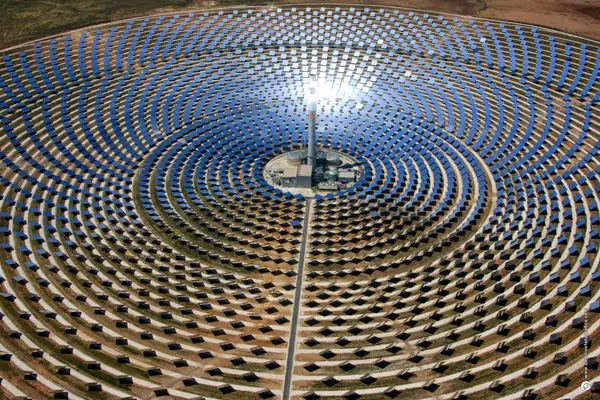After its completion of the fourth phase, the Mohammed bin Rashid Al Maktoum Solar Energy Park will stand as the largest. The solar energy park already stands as a testament to Dubai’s commitment to clean energy. The project also aligns with the UAE’s ambitions and goals of achieving sustainable energy development by 2050. Dubai’s official ruler officially inaugurated the world’s largest solar park at the start of December. The inauguration also marked the completion of the fourth phase of the anticipated solar park. Furthermore, it signified Dubai’s commitment and strides towards ensuring Dubai’s clean energy aspirations. The fourth phase of the Solar Energy Park clearly illustrates Dubai’s commitment to ensuring sustainable energy becomes a reality.
The scope of the project budgets an investment amount of $4.5 billion and covers an area of 44 square kilometers for the fourth phase. The project also boasts a 2.8GW production of power. The addition of 950MW of power by the fourth phase will ensure renewable energy is accessed to 32,000 households. It is expected that the project will contribute to an annual reduction of carbon by 1.6 million tonnes. The fourth phase of the solar energy park also features the world’s tallest solar tower at a height of 263 meters. It also entails a thermal energy storage capacity of 5,907 MWh. The approach reflects the innovative convergence of three hybrid technologies. These include 600MW from a parabolic basin complex, 250MW from photovoltaic solar panels, and 100MW from the tower.
Read also: NEOM Prepares to Tender Construction Work for The Line
Dubai’s Solar Energy Park is Pivotal to The Emirates Achieving its Sustainability Goals
The Mohammed bin Rashid Al Maktoum Solar Energy Park is pivotal for Dubai to achieve its sustainability goals. This is in accordance with the Clean Energy Strategy 2050 and net-zero carbon emissions strategy 2050. These road maps set a strategic aim to achieve 100 percent energy production from cleaner sources. Dubai Electricity and Water Authority (DEWA) outlined that the solar park aims to achieve production at 5,000MW and reduce carbon emissions by 6.5 million tonnes. It is expected that it will be completed by 2030 and ramp up production. The fourth phase has already commissioned 717 MW, incorporating over 790,000 PV solar panels and integrating 70,000 mirrors that dynamically track the sun’s movement.
